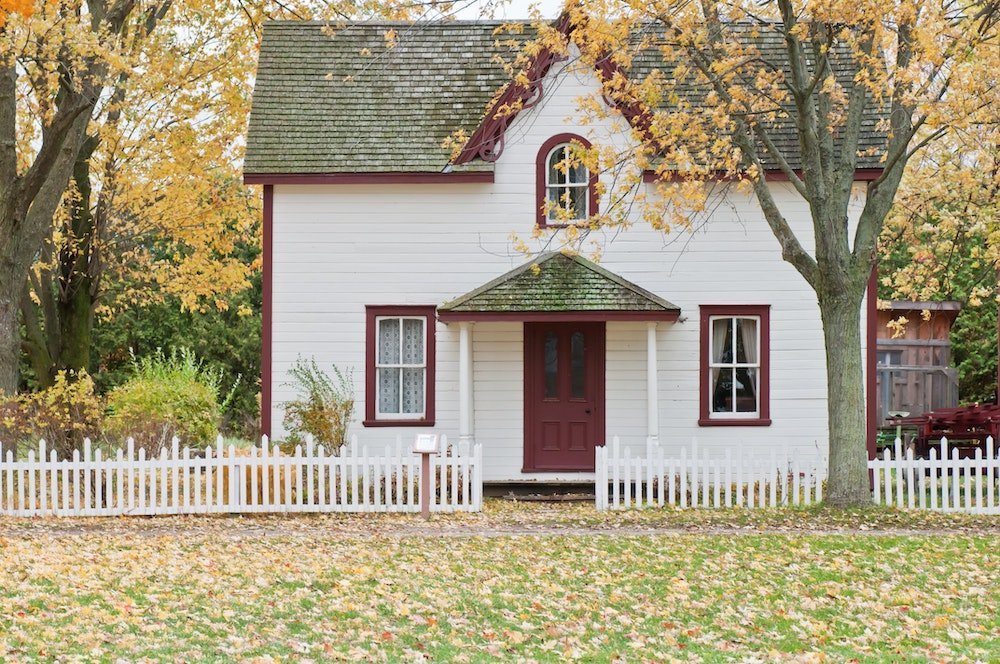
The Federal Housing Finance Agency recently announced the new conforming loan limits for 2022, which will increase the amount you can borrow without needing to apply for a jumbo loan.
For a single-family home in most of the U.S., the new conforming loan limit has increased to $647,200 and up to $970,800 in areas with a substantially higher cost of living — such as Hawaii, Alaska, Washington D.C. and many high-cost counties throughout California.
Visit the FHFA site here to see the loan limits in every U.S. county.
If you’re looking to purchase a home that goes above conforming limits in your area, consider applying for a jumbo loan. Jumbo loans have stricter criteria to qualify, but a jumbo loan can provide extreme flexibility and make your dream home a reality.
Jumbo loans are available for single-family homes, multi-unit properties, vacation homes, and investment properties. Qualified borrowers will have a low debt-to-income ratio, verified income, a 20% down payment and high credit score.
Jumbo Loans, Conforming Loans, and the FHFA
A conforming loan is often referred to as a “regular mortgage.” Conforming loans fall in a broad category of home loans that meet the mortgage limits set by the FHFA (Federal Housing Finance Agency). Each year, the FHFA adjusts these limits based on a number of economic factors in order to regulate the secondary mortgage market and keep lending practices competitive and efficient.
In short, conforming limits determine the maximum amount homeowners can borrow to purchase a home with a government-backed loan. For example, FHA loans, VA loans, USDA loans are all government-backed home loans.
Related: How to buy a duplex with FHA-financing
When you want to purchase a home above conforming limits, you can apply for a jumbo loan. Jumbo loans aren’t guaranteed by Fannie Mae or Freddie Mac and therefore are considered riskier for lenders. But mortgage lenders are ready and eager to approve jumbo loans for qualified borrowers.
Jumbo loans are also more flexible. Since the FHFA doesn’t limit jumbo loans, mortgage lenders can decide how much risk they’re willing to take with each borrower. So if you have strong credentials, such as a high credit score and a low debt-to-income ratio along with a 20% down payment, you’ll be a good candidate for a jumbo loan.
Related: How to Get A Fast Mortgage Pre-Approval
How to Qualify for a Jumbo Loan in 2022
The criteria are more strict for jumbo loans since the loans are larger. Also, since jumbo loans are government-backed, mortgage lenders assume more risk. As a result, jumbo loans typically have slightly higher mortgage rates and stricter requirements.
High Credit Score
To qualify for a jumbo loan, most borrowers will need a credit score above 700. The higher your score, the better home loan you’ll get. A high credit score will give you the best rate, better loan terms, and the lowest mortgage rate.
Related: How to boost your credit score in less than 60 days
Low Debt-to-Income Ratio
Your debt-to-income ratio is one of the biggest factors that mortgage lenders consider. A low DTI shows the lender that you have the cash flow necessary to afford a big mortgage payment. Also, with a low DTI, the lender can see that you’re not overextended when it comes to debt or other financial obligations.
High Cash Reserves
Jumbo loans typically require at least a 20% down payment. Giving evidence of high cash reserves shows the lender that you won’t be house poor once your mortgage gets approved. In some cases, mortgage lenders want to see that a homebuyer has at least one year’s worth of mortgage payments in cash assets.
Bigger Down Payment
Jumbo loans often require 20-30% down for the best home loan. Some lenders will approve a jumbo loan with only 10% down. In contrast, government-backed conforming home loans such as FHA loans only require 3.5% down, and conventional loans only require 3%.
Formal Home Appraisal
Mortgage lenders will sometimes require a second home appraisal. Home appraisals verify the current market value of the home. Since your home will be the collateral for your mortgage, lenders often want to secure a firm confirmation that the home in question is valued correctly.
Related: What to Expect with Your Next Home Appraisal
What documentation will I need to apply for a jumbo loan?
Applying for a jumbo loan is similar to most home loan applications. Notably, jumbo loans have stricter qualifying requirements. For this reason, make sure you have all the required documentation and that your financial and employment information is verifiable.
Mortgage lenders typically require the following documentation to apply for a jumbo loan:
- Identification such as a passport or driver’s license
- Employment verification
- Proof of income (e.g., pay stubs, W-2 statements, bonuses, alimony)
- RSU, ESPP shares, or other stock options
- Tax returns for the past two years
- Recent bank statements
- Investment account statements
- Down payment source
- Current credit report
If you’re self-employed, ask your mortgage advisor about additional information that might be required.
RELATED: How to apply for a jumbo mortgage if you’re self-employed
Next Steps
When you’re ready to apply for a jumbo loan, an experienced mortgage advisor can help you get approved, lock in the lowest mortgage rate, and secure the right home loan. Connect with a mortgage advisor to discuss your options and make a plan that can help you save money on your mortgage. We’d love to help.



